Reflecting on my assessment methods involves a critical evaluation of their effectiveness in measuring student learning and engagement. In this section, I focus on an undergraduate and postgraduate Honours course that I redeveloped, coordinated, and taught: Contemporary Social Worlds (SOC152), Social Science Research Methodology (SOC737), and Contemporary Sociological Theory (SOC736).
A central aim in my approach to assessment is aligning evaluation methods with the intended learning outcomes of each course. I employ a diverse range of assessment strategies, including written assignments, oral presentations, peer assessment, class participation, and reflective writing, to gain a holistic understanding of student learning. These assessments are designed not only to gauge students’ grasp of content but also to encourage critical thinking and the application of sociological theory to real-world contexts. For instance, written assignments in both courses require students to critically engage with theoretical frameworks and apply them to contemporary social issues, thereby fostering analytical skills essential to the discipline.
As part of my commitment to fostering critical thinking, collaboration, and effective communication, I have incorporated student presentations and structured peer feedback into the assessment strategy for the Honours SOC737 course. In this seminar, students are required to present their research proposals to their peers and faculty, creating an interactive platform for academic exchange. These sessions are designed not only to assess students’ ability to orally communicate complex research ideas but also to cultivate a culture of constructive critique and scholarly dialogue. Through engaging in peer review and class debates, students learn to evaluate diverse methodological and theoretical approaches, deepen their understanding of research design, and refine their own projects based on the feedback received. The final session is dedicated to reflection, allowing students to consolidate their learning, revise their proposals, and further strengthen their academic voice. This approach supports the development of key postgraduate competencies, including critical engagement, academic writing, and public speaking.
I incorporate both formative and summative assessments to support student development throughout the semester. Formative assessments, such as reflective journals and in-class discussions, provide ongoing feedback that helps students identify and address areas for improvement. Summative assessments, including final papers and group projects, allow students to consolidate and demonstrate their cumulative learning. This blended approach ensures that assessment is not limited to final outputs but also supports continuous learning and academic growth.
Student feedback has played a vital role in refining my assessment practices. In SOC152, for example, students have expressed appreciation for the clarity and structure of assignments, as well as the manageable workload resulting from a single weekly reading. This design has supported deeper engagement with the material and more meaningful classroom discussions. Additionally, incorporating multimedia resources such as video and documentary analyses has proven effective in helping students contextualise complex theoretical concepts.
Creating an inclusive and supportive learning environment is a core value that informs both my teaching and assessment strategies. Through an interactive teaching style that emphasises dialogue and student-led inquiry, I aim to foster a classroom culture where all students feel comfortable expressing their perspectives. This is particularly important when addressing sensitive topics such as gender, sexuality, and identity. Accordingly, my assessments are designed to be inclusive, encouraging students to draw on diverse perspectives and lived experiences in their analysis.
While I am encouraged by the effectiveness of my current assessment methods, I remain committed to ongoing improvement. I am exploring innovative strategies such as peer assessment, undergraduate student presentations, collaborative projects, and the integration of digital tools to support remote learning and provide timely feedback. These enhancements will further support student engagement and help prepare learners for the analytical and collaborative demands of both academic and professional settings.
In summary, my assessment practices are grounded in pedagogical intention, inclusivity, and responsiveness to student needs. Through continuous reflection and adaptation, I strive to ensure that my courses offer a rigorous, engaging, and supportive learning experience.
Assessment Strategies
These images below capture postgraduate Honours students delivering presentations as part of their course assessment. This approach not only prepares them for future academic endeavors such as postgraduate conference presentations but also fosters confidence and provides a platform for articulating their perspectives and interpretations of course content, and their research topics. This method reflects my pedagogical philosophy, which challenges the traditional view of students as passive recipients of knowledge. Instead, it embraces an inclusive model that empowers students as active participants in the co-construction of knowledge and meaning-making through critical engagement with theories and concepts.
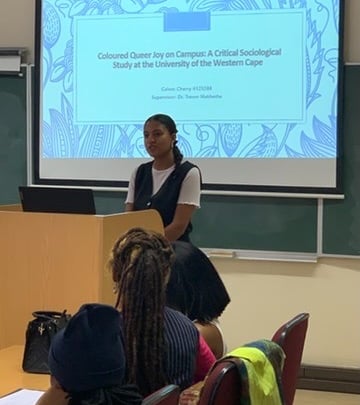

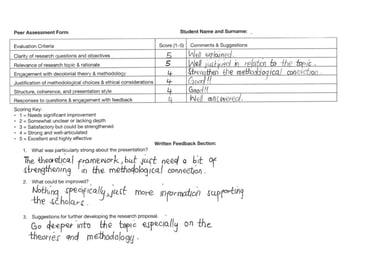

Oral Presentations
Peer Assessments
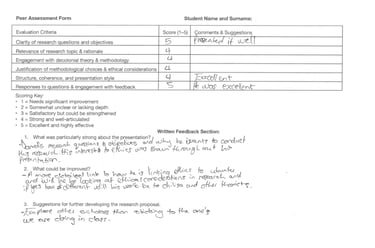

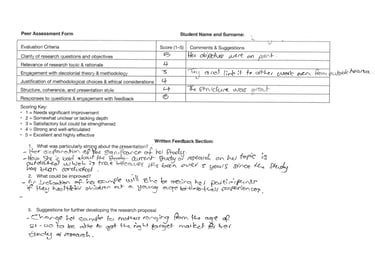

These images provide evidence of the peer assessment forms completed by students as part of their course assessments. Incorporating peer assessment into the learning process encourages deeper student engagement by requiring them to critically evaluate the work of their peers. This active involvement not only reinforces their understanding of course content and assessment criteria, but also enhances their ability to identify strengths and areas for improvement in others' work. This also helps them reflect more critically on their own work and make improvements.
Postgraduate Assessment Strategies: SOC 736 and SOC 737
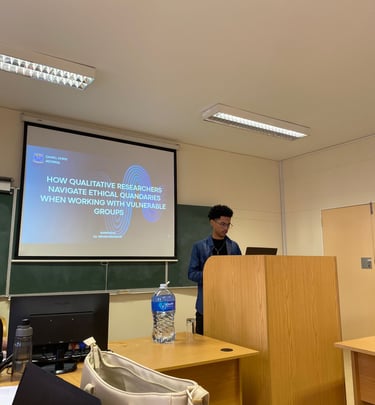

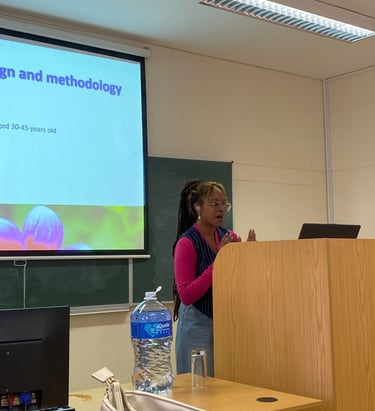

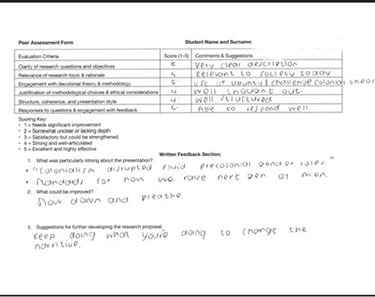

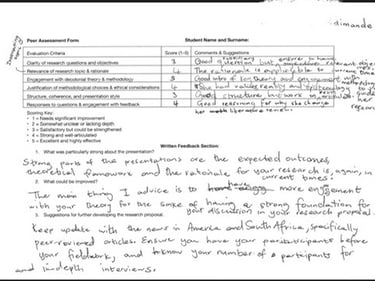



These voice recordings are evidence of class engagement. They showcase the use of guiding questions to aid structured reading and the contextualisation of "difficult texts" through discussion-based learning. It also provides evidence of my guidance to Honours students in developing their research proposals.
Undergraduate Assessment Strategies
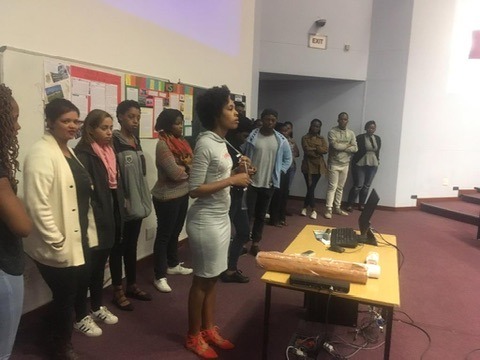

Photo: Undergraduate students conducting oral presentations as part of their assessment.
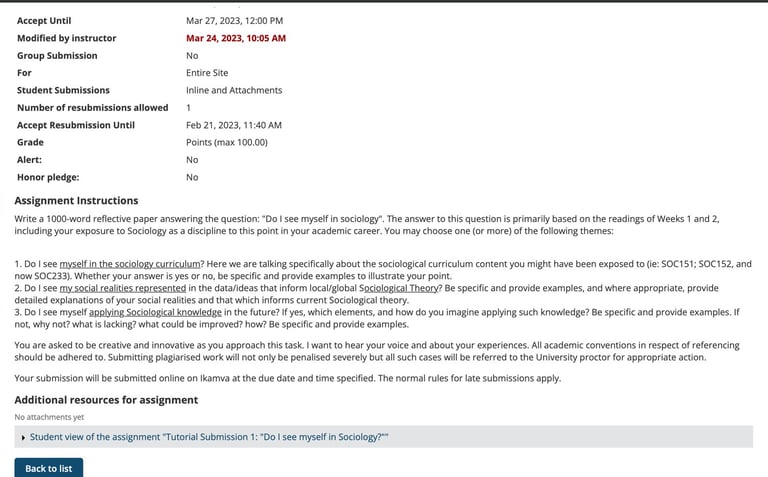

An example of an assignment that instructs students to engage in reflective writing as part of their assessment.
Here is a student's work in response to the assignment on reflective writing.
Class Debates
Debates develop public speaking, persuasion, and active listening abilities, which are all key skills for academic success. It also fosters active learning by encouraging student involvement and interaction, making learning more dynamic and memorable.
